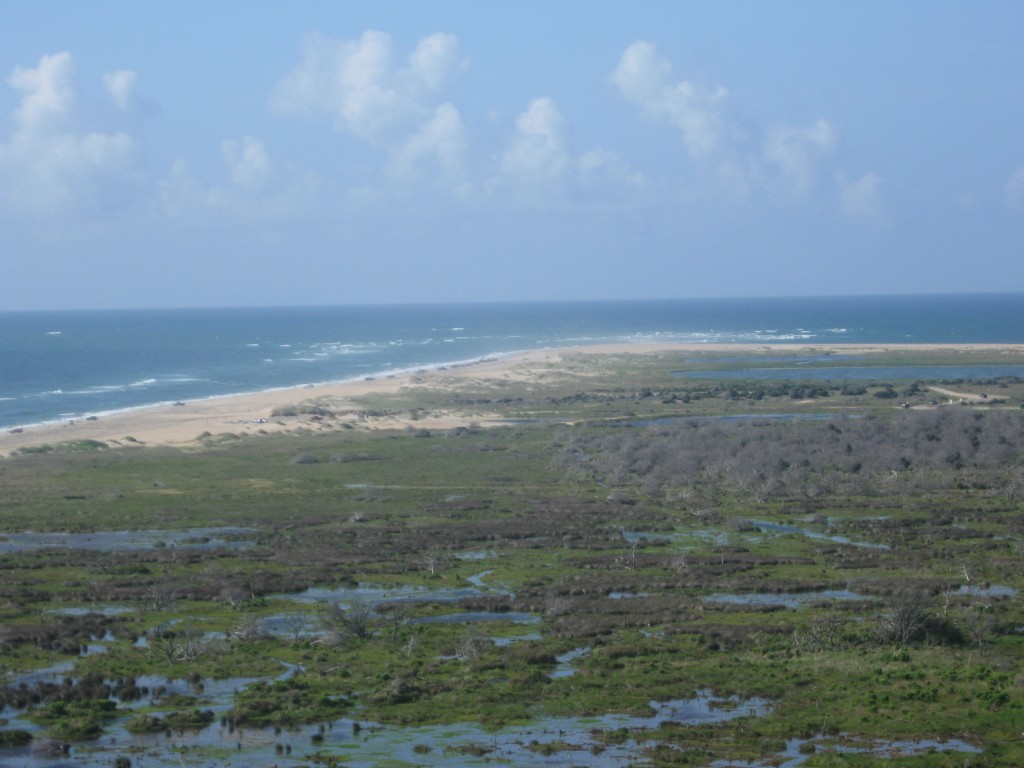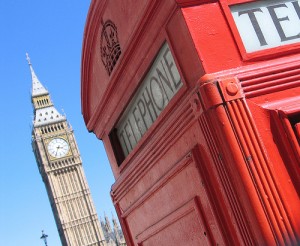
View from the Top of Cape Hatteras
This weekend, we planned to celebrate our first anniversary with a weekend getaway to Charleston, SC. Since we’re working toward so many financial goals, we didn’t want to spend much money on this trip. However, it wasn’t quite as frugal as it could have been. With a $100 hotel room and $50 in boarding fees for our dog plus restaurant meals and entertainment, I had the nagging feeling that we were spending too much.
On Friday afternoon, I checked the weather for Saturday in Charleston. Thundershowers. Though it was disappointing, I just couldn’t justify spending that kind of money on a trip when there was such a high potential for rain all weekend. At the last minute, we canceled our hotel reservation.
I felt good about the decision from a financial perspective, but I still woke up feeling disappointed on Saturday morning. We had both been looking forward to getting away to celebrate our anniversary and holiday weekend. At 8:30 a.m., we made a highly uncharacteristic last minute decision to pack up the dog and our tent and head north for an anniversary camping trip in the Outer Banks.
Last month Tony won $150 in a writing contest, so we decided to use that money for our trip. Here’s the breakdown of what we spent:
Food
We spent $15 at the grocery store on the way out of town for snacks (fruit and nuts), $5 on coffee stops, $30 at the grocery store for camping provisions like hot dogs, chips and charcoal. We were not as frugal as normal at the grocery store, but we had decided to avoid restaurants as much as possible so we wanted to make sure we had plenty of snacks. We went out to lunch Sunday and spent $25, so our food total for two days was a ridiculous $75. Whoops.
Transportation
We used about two tanks of gas round trip ($50). I cashed in some MyPoints for a $25 gas card. I also cashed in a $25 rebate reward from our gas credit card (which we pay in full every month). So we didn’t spend any money out of pocket for gas! We did pay to ride a ferry to one island from another, and the two-hour ride cost $15.
Camping
We stayed at a national park, so camping was free! We were right next to the beach, so we could hear the ocean waves at night. The sky was clear so we left the rain flap off the top of our tent so we could see the stars. It wasn’t quite as comfortable as a hotel, but it certainly had its charms.
Entertainment
We spent the weekend hiking nature trails, hanging out at the campsite, and walking along the beach. In the evening, we played cards by candlelight at our campsite (campfires weren’t allowed on the beach). The only money we spent on entertainment was $14 to climb to the top of the lighthouse at Cape Hatteras. The view was worth every penny!
Dog Boarding
We would have spent $50 to board our dog if we had gone to Charleston. Instead, we brought him with us, so we didn’t pay a dime. And he had a great time outdoors, even if he was a little stressed about sleeping outside.
So instead of spending $150 plus food and entertainment, we spent about $105 for a fantastic weekend. Since we didn’t pay for a hotel, dog boarding or gas, our budget was better spent on good food and fun. Overall, I’m very happy with our decision to cancel the Charleston trip, and we plan to spend a lot more time camping this summer.




